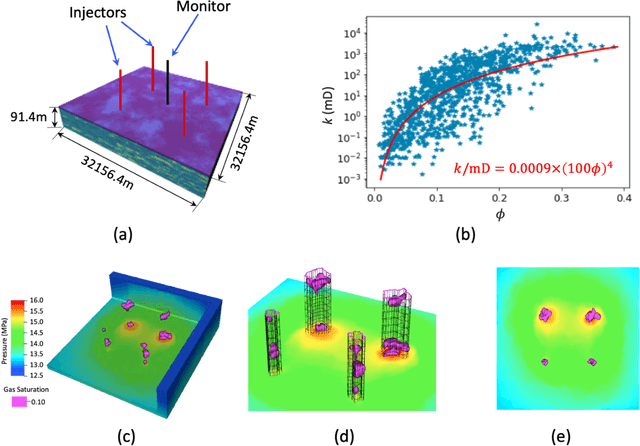Matthew Burton-Kelly
A Deep Learning-Accelerated Data Assimilation and Forecasting Workflow for Commercial-Scale Geologic Carbon Storage
May 09, 2021



Abstract:Fast assimilation of monitoring data to update forecasts of pressure buildup and carbon dioxide (CO2) plume migration under geologic uncertainties is a challenging problem in geologic carbon storage. The high computational cost of data assimilation with a high-dimensional parameter space impedes fast decision-making for commercial-scale reservoir management. We propose to leverage physical understandings of porous medium flow behavior with deep learning techniques to develop a fast history matching-reservoir response forecasting workflow. Applying an Ensemble Smoother Multiple Data Assimilation framework, the workflow updates geologic properties and predicts reservoir performance with quantified uncertainty from pressure history and CO2 plumes interpreted through seismic inversion. As the most computationally expensive component in such a workflow is reservoir simulation, we developed surrogate models to predict dynamic pressure and CO2 plume extents under multi-well injection. The surrogate models employ deep convolutional neural networks, specifically, a wide residual network and a residual U-Net. The workflow is validated against a flat three-dimensional reservoir model representative of a clastic shelf depositional environment. Intelligent treatments are applied to bridge between quantities in a true-3D reservoir model and those in a single-layer reservoir model. The workflow can complete history matching and reservoir forecasting with uncertainty quantification in less than one hour on a mainstream personal workstation.
 Add to Chrome
Add to Chrome Add to Firefox
Add to Firefox Add to Edge
Add to Edge